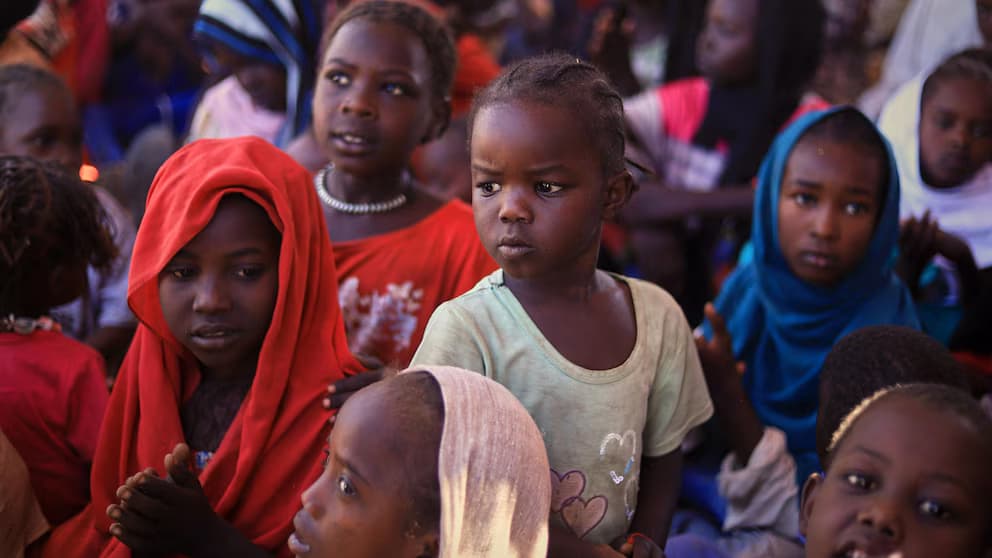We're loading the full news article for you. This includes the article content, images, author information, and related articles.
As Sudan’s civil war intensifies with the fall of El Fasher and reports of mass atrocities, Kenya and its neighbours face a deepening humanitarian crisis, straining regional stability and testing diplomatic limits.

The civil war in Sudan is “spiralling out of control,” United Nations Secretary-General António Guterres warned on Tuesday, 4 November 2025, following the capture of El Fasher in North Darfur by the paramilitary Rapid Support Forces (RSF). Speaking from a summit in Qatar, Guterres described a horrifying crisis where hundreds of thousands of civilians are trapped, dying from malnutrition, disease, and violence amid credible reports of widespread executions. The conflict, which erupted on 15 April 2023, pits the Sudanese Armed Forces (SAF) under General Abdel Fattah al-Burhan against the RSF, led by General Mohamed Hamdan Dagalo. The fall of El Fasher on 26 October 2025, the last SAF stronghold in the vast Darfur region, marks a devastating turning point in a war that has created the world's largest displacement crisis.
The scale of the humanitarian disaster is staggering. The conflict has displaced over 12 million people, with nearly 4 million fleeing to neighbouring countries. While death toll estimates vary, tens of thousands have been killed, with some former diplomats suggesting the figure could be as high as 400,000. The UN has described the situation as one of the worst humanitarian crises of the 21st century. Famine has been officially declared in El Fasher by the World Health Organization, and acute food insecurity affects over 24 million people across the country. The violence has decimated Sudan's healthcare system, leading to outbreaks of cholera and other diseases, further endangering a population already on the brink of starvation.
Following the RSF's seizure of El Fasher, numerous videos and reports have emerged alleging mass killings, rape, and other ethnically motivated crimes. On Monday, 3 November 2025, the International Criminal Court (ICC) Office of the Prosecutor expressed profound alarm, stating that the alleged atrocities, if verified, may constitute war crimes and crimes against humanity. Prosecutor Karim Khan confirmed that the ICC is actively collecting evidence of these crimes in Darfur, reminding the warring parties of the court's jurisdiction in the region under a 2005 UN Security Council resolution. The RSF, which evolved from the Janjaweed militia accused of genocide in Darfur two decades ago, has denied the allegations, but witness testimonies and satellite imagery paint a grim picture of the violence.
The collapse of Sudan poses a direct threat to the stability of East Africa. The conflict disrupts regional trade, fuels the proliferation of illegal arms, and risks drawing in neighbouring states. For Kenya, the implications are severe. The influx of refugees is placing immense strain on already stretched resources in camps like Kakuma and Dadaab. While precise, up-to-date figures for Sudanese refugees arriving in Kenya since the conflict's escalation are still being compiled, the overall refugee population in the country stood at 843,165 as of March 2025, with new arrivals straining services. The war also jeopardises significant Kenyan investments in South Sudan's banking, aviation, and retail sectors, which are heavily reliant on stability in the region.
Multiple diplomatic efforts to broker a ceasefire, including those led by the regional body IGAD (Intergovernmental Authority on Development), the African Union, and a US-Saudi initiative in Jeddah, have so far failed to halt the violence. The conflict is complicated by significant foreign interference. The United Arab Emirates (UAE) has been repeatedly accused of supplying weapons and logistical support to the RSF, a charge it denies despite evidence cited in UN expert reports. These reports detail a covert air bridge of military cargo flights from the UAE to Chad, allegedly used to arm the RSF. Secretary-General Guterres has explicitly called for an end to the flow of weapons into Sudan, which he stated is making a desperate situation even worse. The failure of regional diplomacy, in which Kenya has historically played a key role, underscores the complexity of a conflict now fueled by powerful external actors. With the humanitarian situation deteriorating daily, the international community's inability to forge a path to peace leaves millions of Sudanese, and the wider region, facing a catastrophic future.
Keep the conversation in one place—threads here stay linked to the story and in the forums.
Sign in to start a discussion
Start a conversation about this story and keep it linked here.
Other hot threads
E-sports and Gaming Community in Kenya
Active 9 months ago
The Role of Technology in Modern Agriculture (AgriTech)
Active 9 months ago
Popular Recreational Activities Across Counties
Active 9 months ago
Investing in Youth Sports Development Programs
Active 9 months ago
Key figures and persons of interest featured in this article